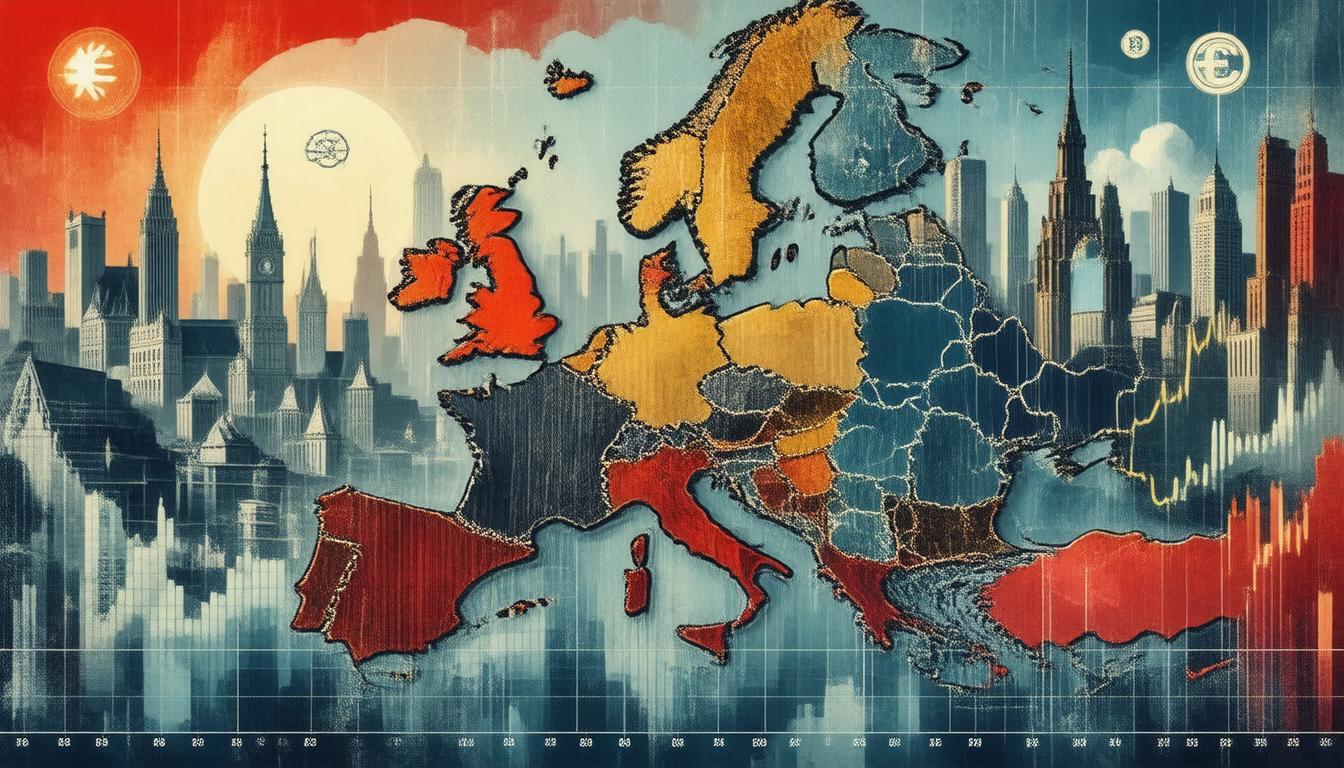As the world anticipates the inauguration of US President-elect Donald Trump, European stock markets have shown a slight upward trend.
In today’s trading session, Germany’s DAX index rose by
0.1%, France’s CAC 40 increased by
0.3%, and the UK’s FTSE 100 also climbed by
0.1%.
While trading activity is expected to be somewhat subdued due to the closure of US markets for Martin Luther King Jr.
Day, investors are keenly watching the developments surrounding Trump’s presidency.
This article will delve into the market reactions surrounding this pivotal event, key economic indicators, and what consumers can expect in the near future.
Key Takeaways
- European stock markets showed minimal gains as traders await Trump’s inauguration.
- Concerns over Trump’s potential trade tariffs against China and the EU are impacting market sentiment.
- The World Economic Forum in Davos will address global economic growth amidst uncertainty in US trade policy.
Market Reactions to Trump’s Inauguration
As the world turns its attention to the inauguration of US President-elect Donald Trump, European stock markets reacted with slight gains on Monday.
Germany’s DAX index climbed by
0.1%, France’s CAC 40 increased by
0.3%, and the UK’s FTSE 100 saw an uptick of
0.1%.
Traders are cautiously optimistic, awaiting what Trump’s administration might usher in, particularly in the realm of significant executive actions focusing on immigration reforms and deregulation.
Reports have surfaced suggesting that Trump may declare a national emergency to catalyze his policy agenda, which has raised eyebrows regarding potential trade tariffs against China and the European Union, leading to market speculation.
Meanwhile, trading activity in Europe was notably limited due to US markets being closed in observance of Martin Luther King Jr.
Day.
At the same time, the World Economic Forum is set to kick off in Davos, where global leaders are convening to discuss strategies for stimulating economic growth, while Trump is expected to address attendees via remote connection.
In economic data news, Germany’s Producer Price Index (PPI) registered a year-over-year increase of only
0.8%, a figure that fell short of expectations and raised concerns in relation to the European Central Bank’s goals for maintaining low interest rates amid sluggish inflationary movements.
Notably, the People’s Bank of China decided to keep its benchmark interest rate steady, showcasing a cautious stance as global markets eye potential repercussions from policies being shaped in Washington.
Additionally, the corporate earnings scene in Europe remains relatively subdued after a vigorous reporting season in the United States, particularly from major financial institutions.
Oil prices consequently experienced a slight dip leading up to the inauguration, reflective of the prevailing market caution and worries over the possible intensification of sanctions on Russian crude supplies.
In this climate of uncertainty, it is crucial for consumers to stay informed about the evolving economic landscape that may impact everything from stock portfolios to everyday expenses.
Economic Indicators and Future Outlook
With the global financial landscape poised for shifts, consumers should remain vigilant as economic indicators unfold.
The slight uptick in European stock markets on Monday, albeit marginal with Germany’s index climbing by just
0.1% and France’s by
0.3%, sets the stage for potential market volatility in the wake of President-elect Trump’s inauguration.
Observers are particularly wary of his anticipated executive actions, including a national emergency declaration to implement his policy goals.
This move could lead to increased trade tariffs on imports from China and the EU, which may ultimately affect prices for consumers on a broad spectrum of goods and services.
Furthermore, the upcoming discussions at the World Economic Forum in Davos will likely provide insights into global economic strategies, but the subdued corporate earnings report from Europe, in contrast with the vigorous US earnings season, raises questions about regional economic resilience.
As oil prices experience slight declines and inflation remains a concern, consumers are encouraged to continuously monitor these economic changes, as they are likely to shape future purchasing power and financial planning.















